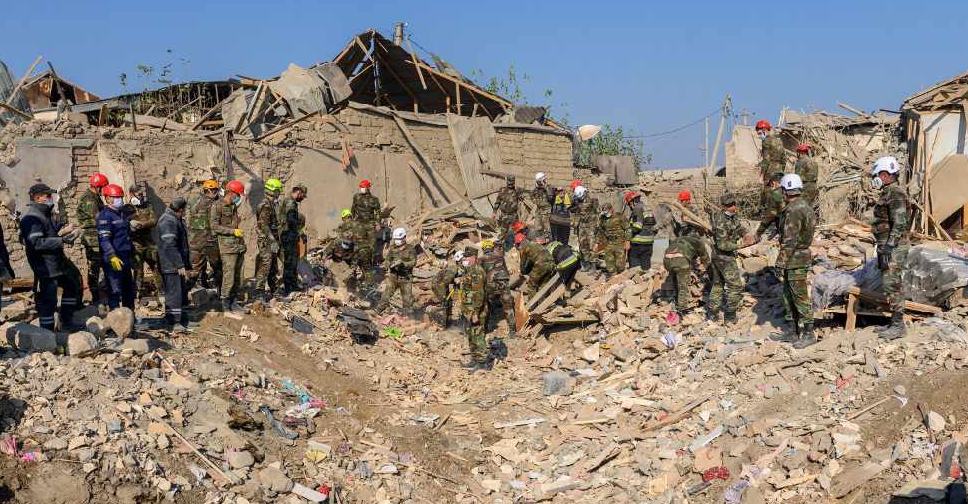
Armenia and Azerbaijan accused each other on Sunday of violating a new humanitarian ceasefire in fighting over the mountain enclave of Nagorno-Karabakh, hours after it was agreed.
The truce agreed on Saturday came into force at midnight (2000 GMT) after a week-old Russian-brokered ceasefire failed to halt the worst fighting in the South Caucasus since the 1990s.
The Armenian defence ministry said the Azeri army had fired twice during the night and used artillery.
The Azeri defence ministry said: "The enemy fired at the vicinity of the Jabrail city, as well as the villages of this region... using mortars and artillery". It added that the Azeri army "took adequate retaliatory measures".
Officials in Nagorno-Karabakh said Azeri forces had launched an attack on the enclave's military positions and there were casualties and wounded on both sides.
Nagorno-Karabakh is a mountain territory that is internationally recognised as part of Azerbaijan but populated and governed by ethnic Armenians.
The ceasefire earlier this month was aimed at letting the sides swap detainees and bodies of those killed in the clashes, but it had little impact on the fighting around the enclave.
The new truce was announced on Saturday after Russian Foreign Minister Sergei Lavrov talked to his Armenian and Azeri counterparts by phone and called on sides to observe the truce that he mediated a week ago.
Russia, France and the United States belong to the Minsk Group, which has attempted to help resolve the conflict under the umbrella of the Organisation for Security and Cooperation in Europe (OSCE).
Baku said on Saturday that 60 Azeri civilians had been killed and 270 wounded since the fighting flared on September 27. It has not disclosed its military casualties.
Nagorno-Karabakh says 633 of its military personnel have been killed, and 36 civilians.

 UK inquiry finds 'chilling' cover-up of infected blood scandal
UK inquiry finds 'chilling' cover-up of infected blood scandal
 Iranian President Raisi killed in helicopter accident, state media says
Iranian President Raisi killed in helicopter accident, state media says
 ICC prosecutor seeks arrest warrants for Israeli, Hamas leaders
ICC prosecutor seeks arrest warrants for Israeli, Hamas leaders
 Assange given permission to appeal against US extradition
Assange given permission to appeal against US extradition
 Israel intends to broaden Rafah sweep, Defence Minister tells US
Israel intends to broaden Rafah sweep, Defence Minister tells US




